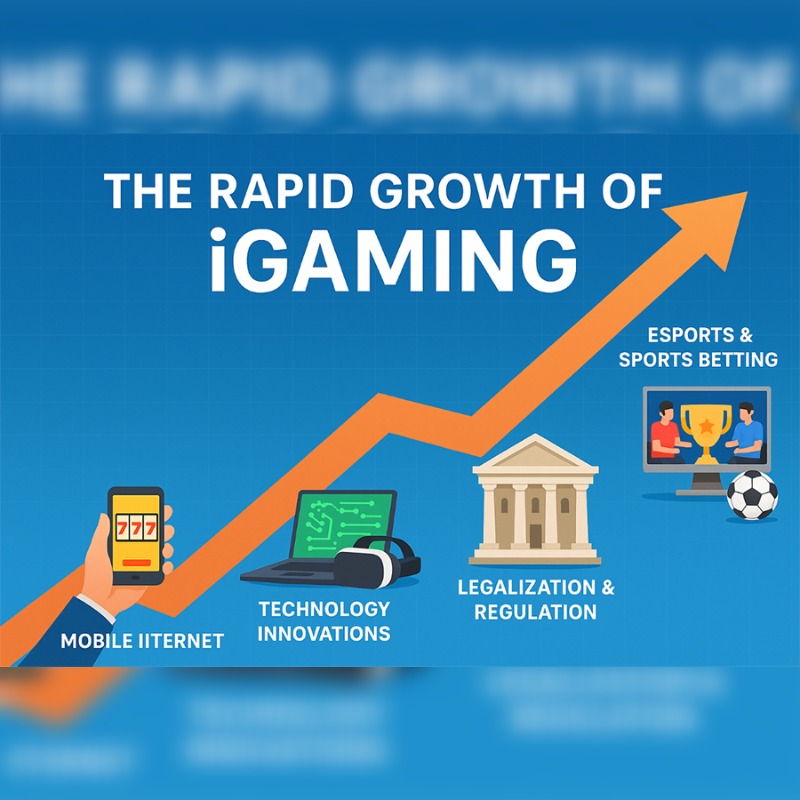
The Rapid Growth of iGaming
The iGaming industry, comprising online casinos, sports betting platforms, eSports wagers, online lotteries, and virtual gaming, has evolved from a niche digital segment into one of the fastest-growing global entertainment sectors. Over the past decade, shifting consumer behaviors, technological advancements, and regulatory transformations have significantly reshaped how people engage with gambling and interactive digital entertainment. Today, iGaming represents a multi-billion-dollar industry that shows no signs of slowing down.
One of the biggest drivers behind iGaming’s surge has been the widespread adoption of mobile internet. Smartphones have become personal entertainment hubs, empowering users to play casino-style games, place bets, or participate in live dealer experiences from virtually anywhere. The convenience and accessibility of mobile gaming have dramatically expanded the audience, no travel to physical casinos, no waiting time, and no geographical limitations. Additionally, apps and mobile-optimized websites offer seamless and secure gameplay supported by global payment solutions.
Technology innovations have further enhanced the gaming experience. High-quality graphics, real-time data streaming, and immersive technologies like augmented and virtual reality are transforming how players interact with digital games. Features such as live casino tables, where real dealers stream gameplay to players worldwide, bring a physical casino atmosphere directly to online audiences. Artificial intelligence and machine learning also play a growing role by personalizing user experiences, preventing fraud, and enabling responsible gaming tools that help safeguard player wellbeing.
The legalization and regulation of online betting in several countries have also fueled industry growth. Markets like the United States, which began broader legalization in 2018, have opened the door to rapid expansion and major investments. Similarly, Europe continues to remain a powerhouse for regulated iGaming, with countries like the UK, Malta, Cyprus, and Spain leading the charge in licensing and compliance frameworks. Regulations help build trust among consumers, ensuring fairness and data protection while creating competitive, secure marketplaces for operators.
Another key factor contributing to iGaming’s global rise is the eSports and online sports betting boom. As digital-first generations, particularly Gen Z and millennialsbecome the dominant consumer audience, demand for interactive, skill-based entertainment has skyrocketed. Live betting, fantasy sports, and influencer-driven gaming communities have opened new revenue streams. Major sporting events, even during periods of reduced physical attendance, have fueled online engagement and betting volumes. iGaming companies now sponsor eSports tournaments, sports teams, and streaming personalities to reach massive fan bases.
Crypto and blockchain technology are also playing a transformative role. Secure, transparent blockchain systems increase user trust, while cryptocurrency payments offer faster and more private transactions. Today, several platforms accept Bitcoin and other digital currencies, providing borderless payment capabilities and attracting tech-savvy users. Decentralized gaming and NFT-based rewards are introducing innovative earning opportunities within the sector.
However, rapid growth comes with challenges. Responsible gaming remains a top concern for regulators and operators alike. The industry is actively developing stricter identity verification measures, self-exclusion systems, and AI-driven monitoring tools to identify harmful patterns. Additionally, cybersecurity is critical, as platforms must shield sensitive financial data from evolving digital threats. Operators that prioritize player protection and transparency are expected to thrive in the long run.
Looking ahead, the future of iGaming appears stronger than ever. Analysts project continuous expansion over the next five years as more nations embrace digital regulation, mobile connectivity deepens, and immersive experiences evolve further. New technologies such as 5G, VR casinos, and interactive streaming functionalities will redefine user engagement, making online gaming even more realistic and social.
In essence, the iGaming industry is no longer simply an extension of traditional gambling, it’s a global entertainment revolution. Driven by innovation, accessibility, and shifting consumer lifestyles, iGaming is shaping the future of digital leisure and unlocking enormous economic and technological opportunities around the world.






